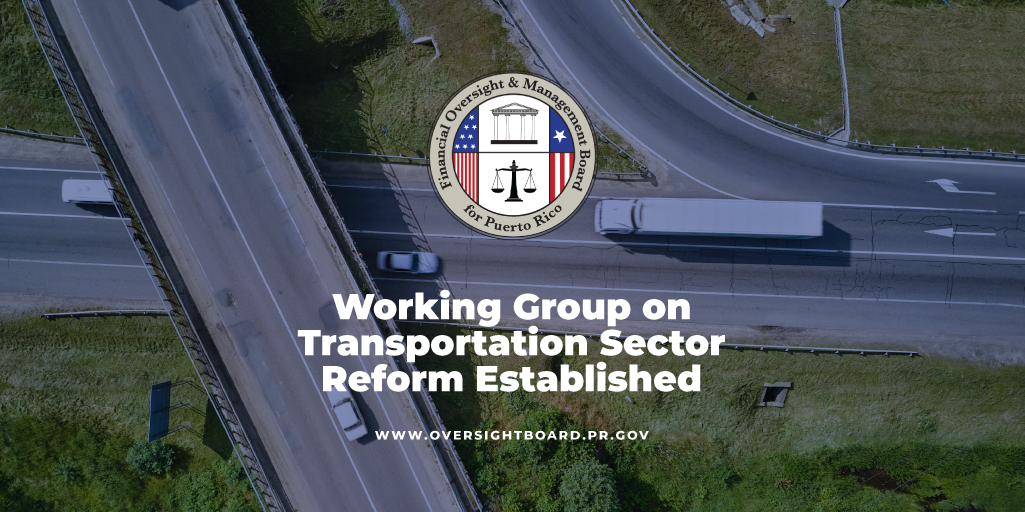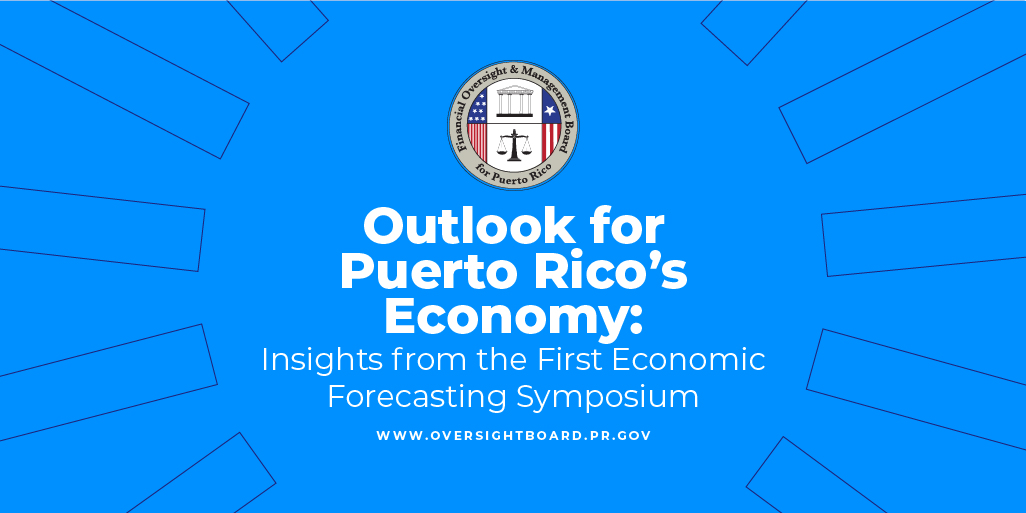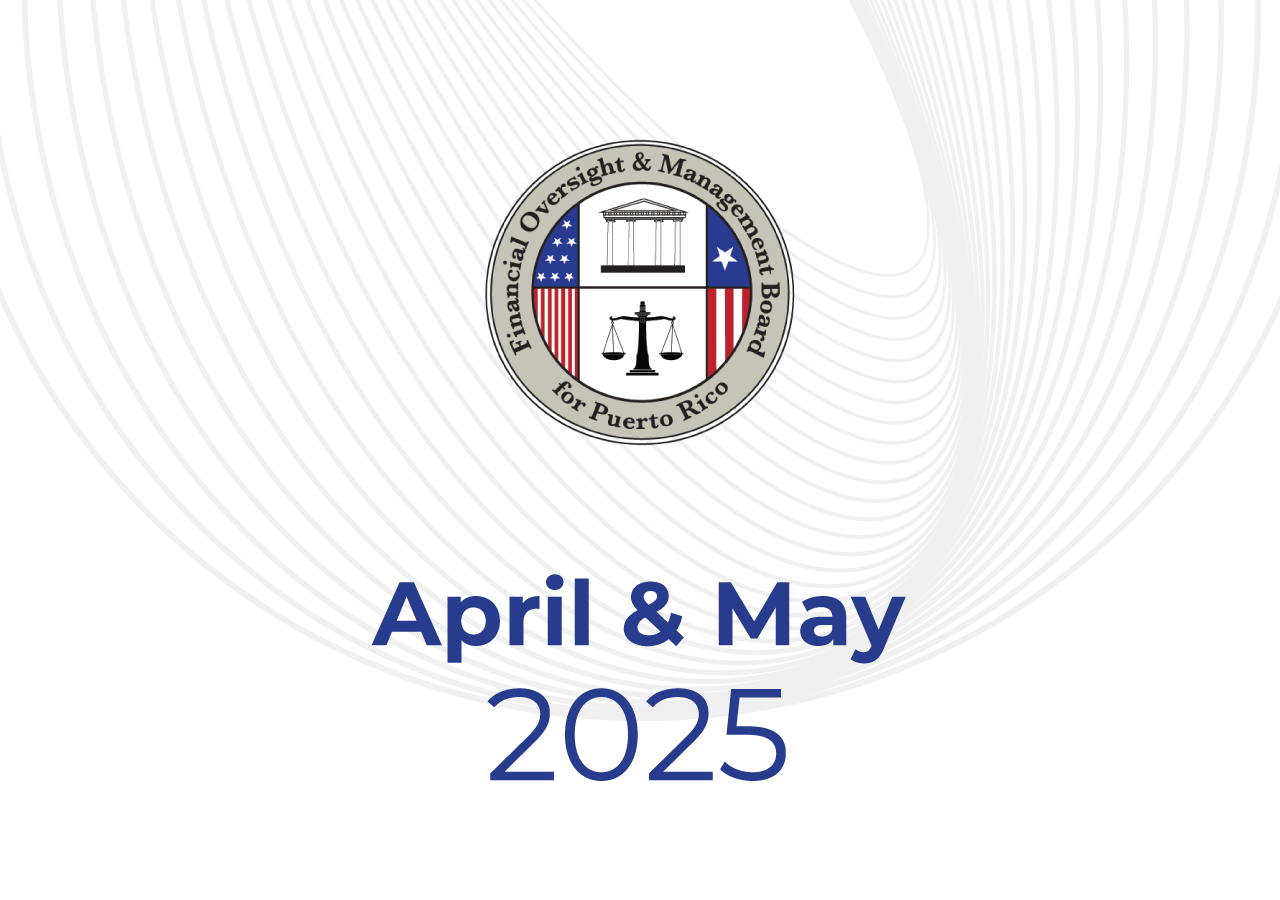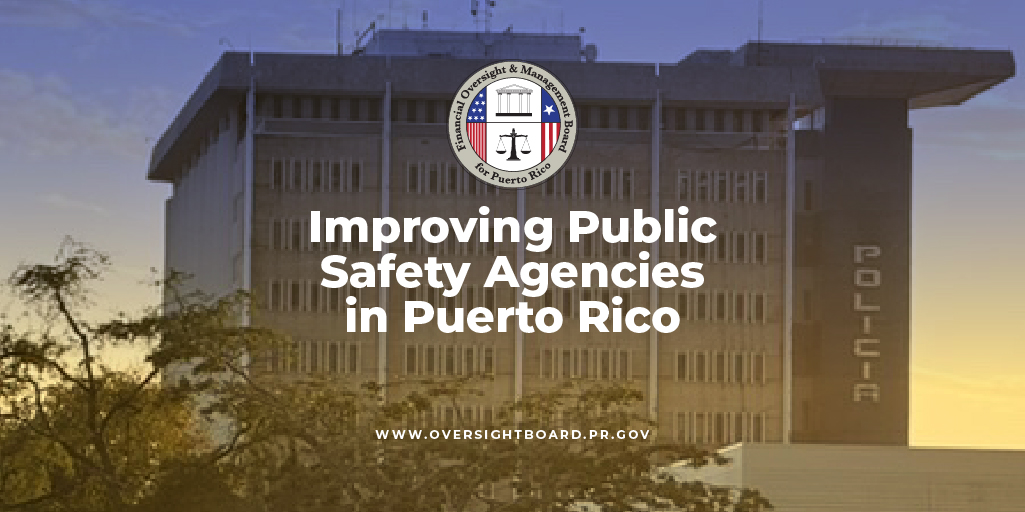Transportation sector reform is a key element of improving Puerto Rico’s infrastructure, and the Certified Fiscal Plan for the Highways and Transportation Authority (HTA) defines the steps to reform the transportation system. To ensure the successful implementation, the Oversight Board, the Government, and HTA established a working group to establish an implementation plan.
The principal objective of the transportation sector reform is to assign direct responsibility to toll, non-toll, and transit entities to enhance the overall performance of Puerto Rico’s transportation network. The working group’s implementation plan will guide the transfer of all HTA’s transit assets to Puerto Rico Integrated Transit Authority (PRITA) and the segregation of toll and non-toll operations, including separate management for those operations.
Why is this important? A well-maintained transportation system would increase access to jobs and business opportunities, unlocking the productive potential of residents and businesses. Most of all, it will improve the quality of life in Puerto Rico.
Puerto Rico’s transportation network has long been fragmented and by reorganizing transportation assets into three separate areas, the reform will improve long-term efficiency and performance. The transportation sector reform, along with the recently completed debt restructuring, will pave the way for HTA to be more efficient, well-maintained, and financially stable.
As part of the reform, HTA must establish a Toll Management Office that is exclusively responsible for toll-roads, separate responsibility for construction and maintenance between toll-roads and non-toll-roads, and transfer the Tren Urbano to the Puerto Rico Integrated Transit Authority.
Traffic congestion in the San Juan metro area and the Island’s poor road quality have long been a challenge. Of Puerto Rico’s highways, only 13% are deemed by the federal government to be in good condition, while San Juan drivers lose 58 hours each year due to traffic congestion at a cost of $1,150 per driver. Traffic congestion in the metro area is, of course, also partly because too few residents switch from cars to trains. Improving the accessibility, attractiveness, and reliability of the Tren Urbano is another important element of the reform.
The to-do list of the Working Group includes setting up separate management offices, segregating budgets, finalizing updated roles and responsibilities, and preparing to allocate resources.
Every resident of Puerto Rico deserves safe, well-maintained roads and an efficient and accessible transportation system, which in turn will drive needed economic growth. The transportation sector reform creates a sustainable path to achieve those goals.





